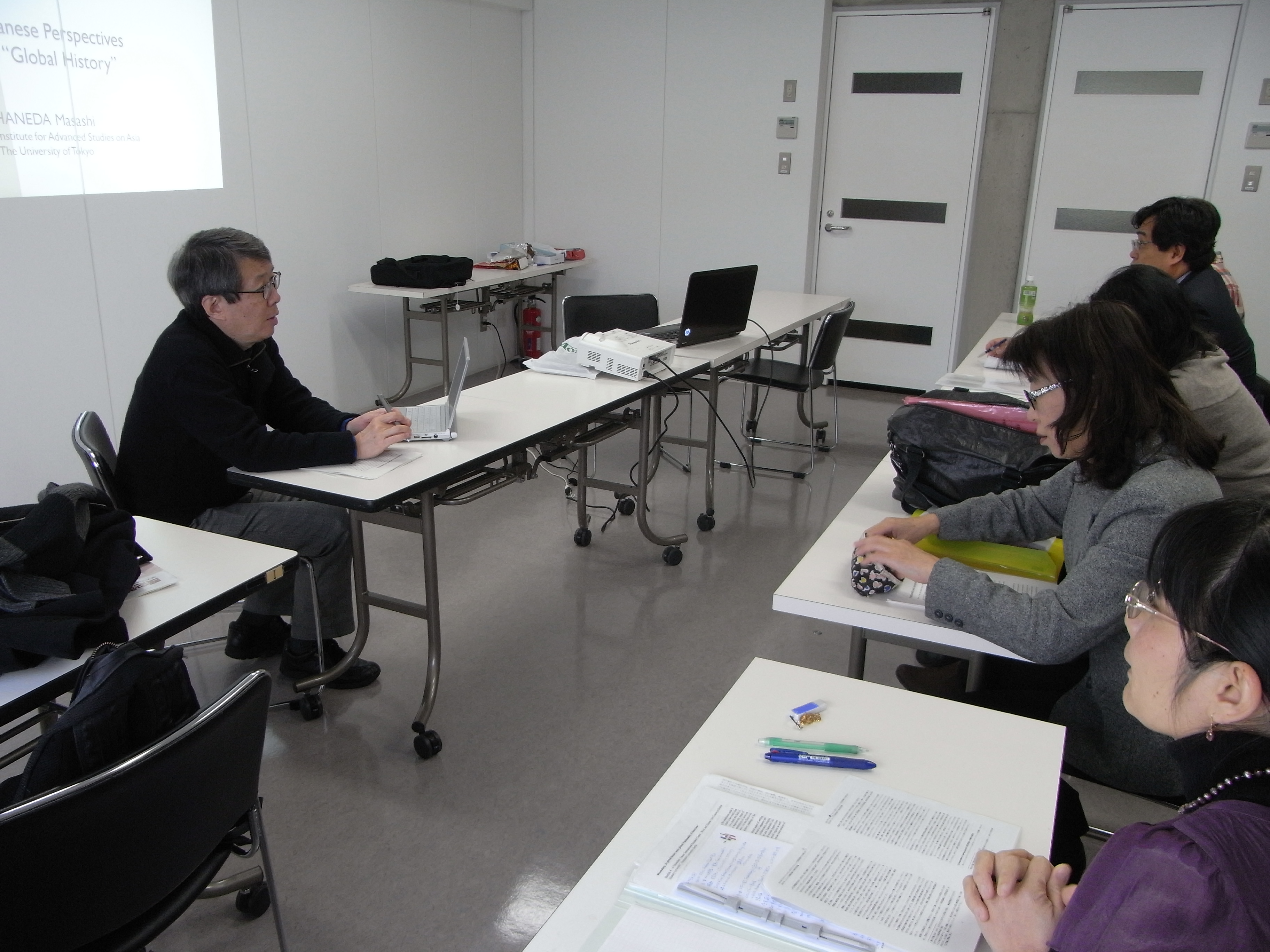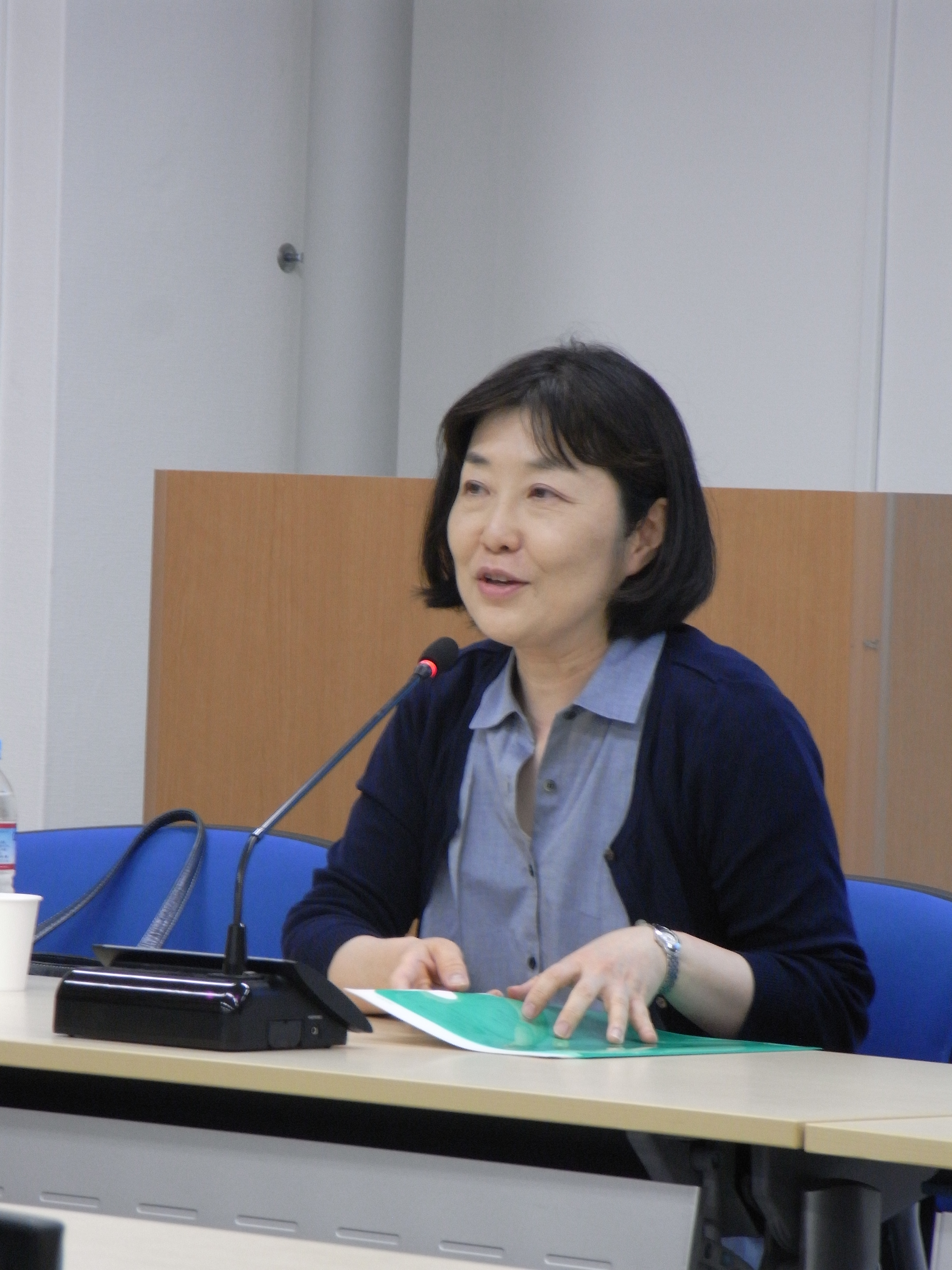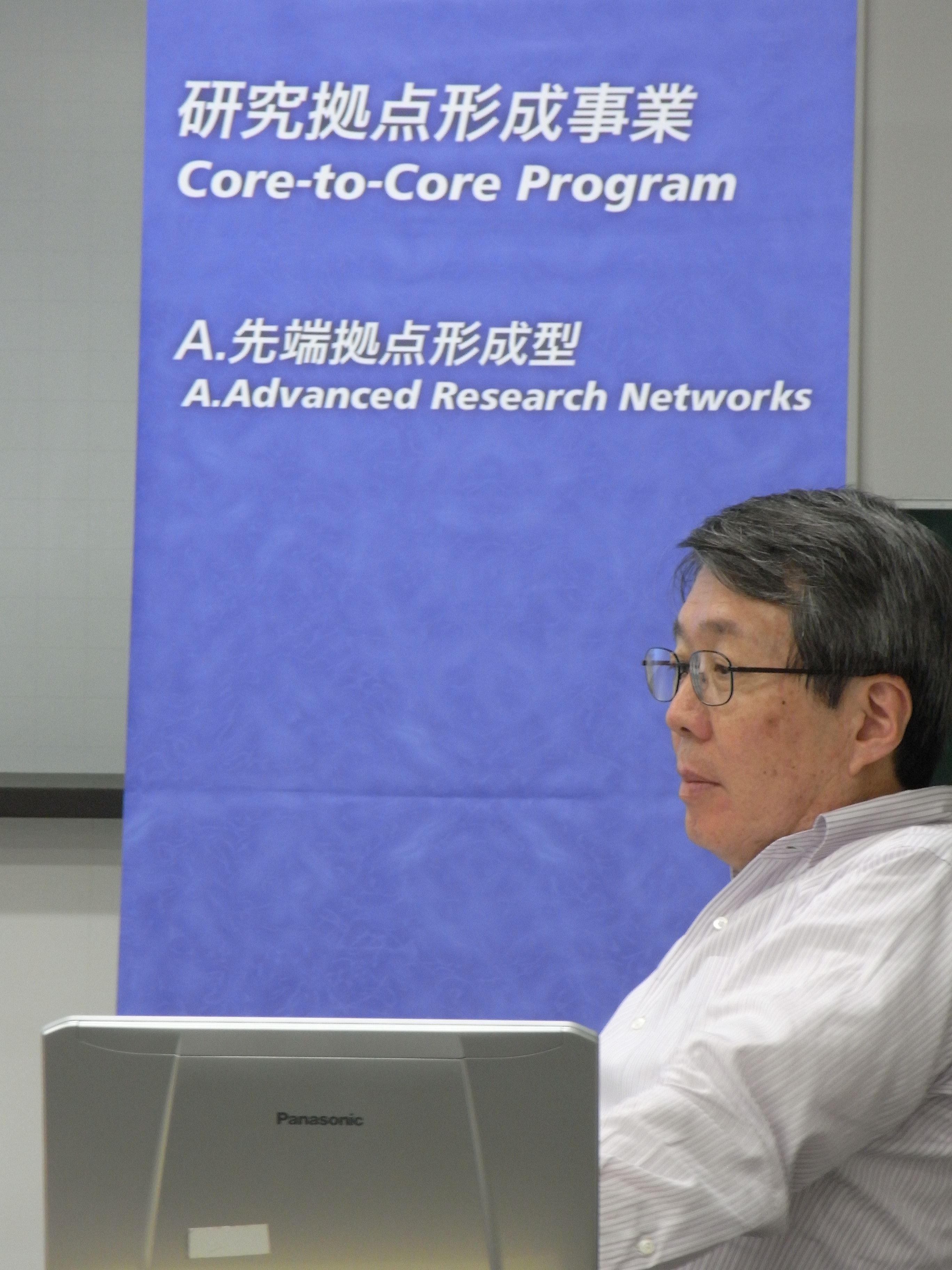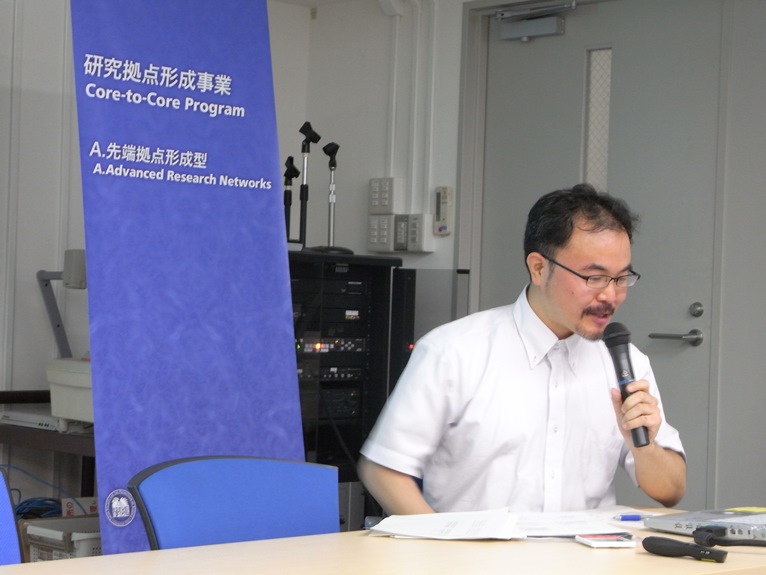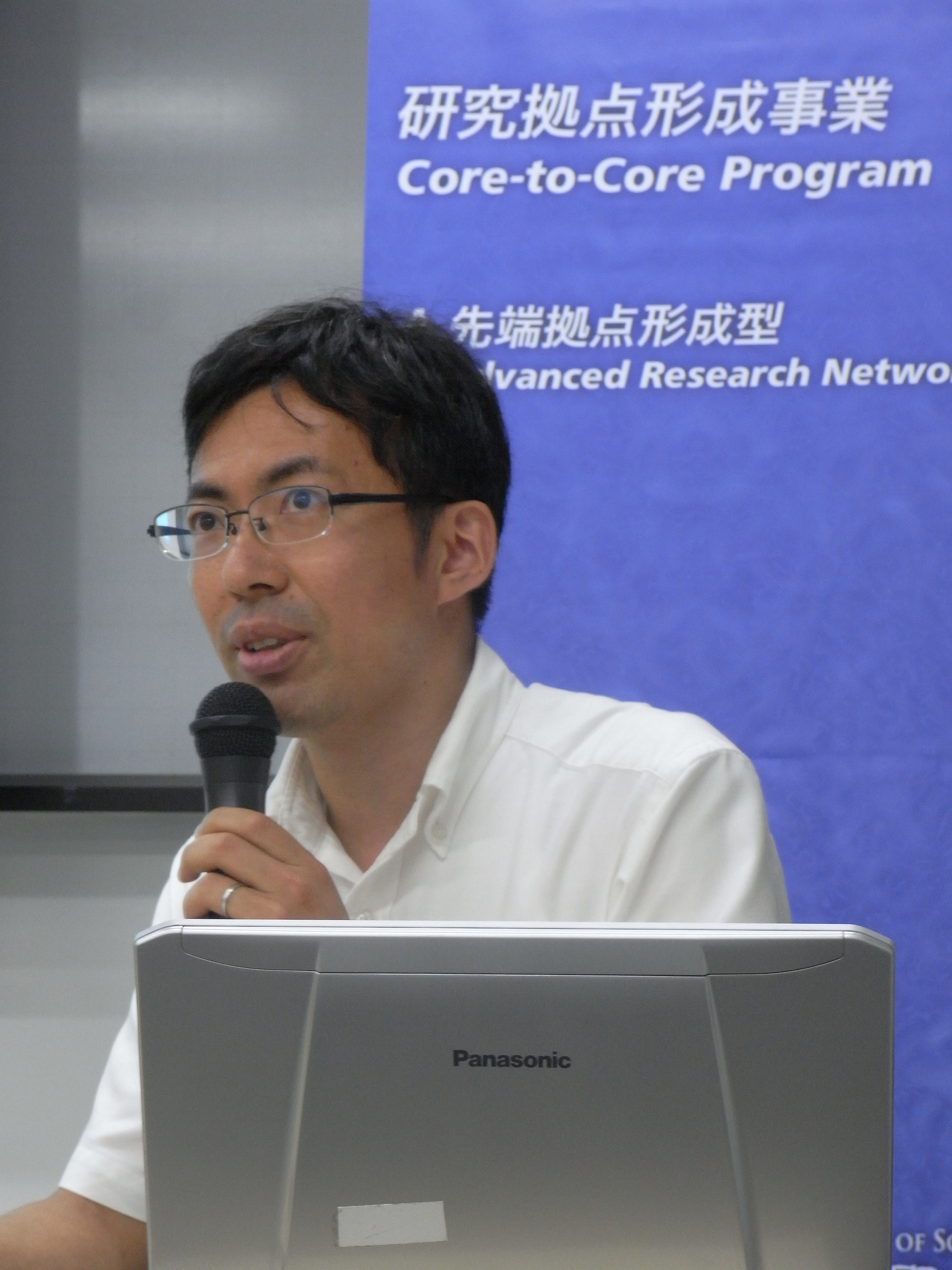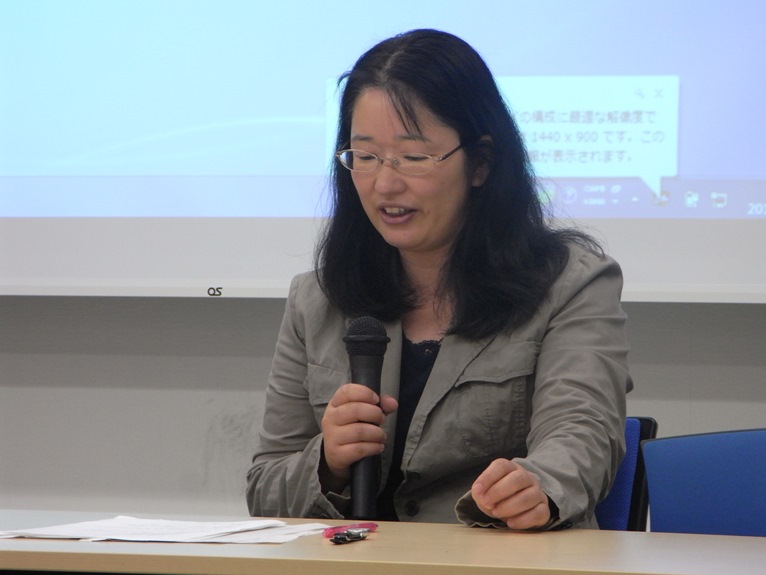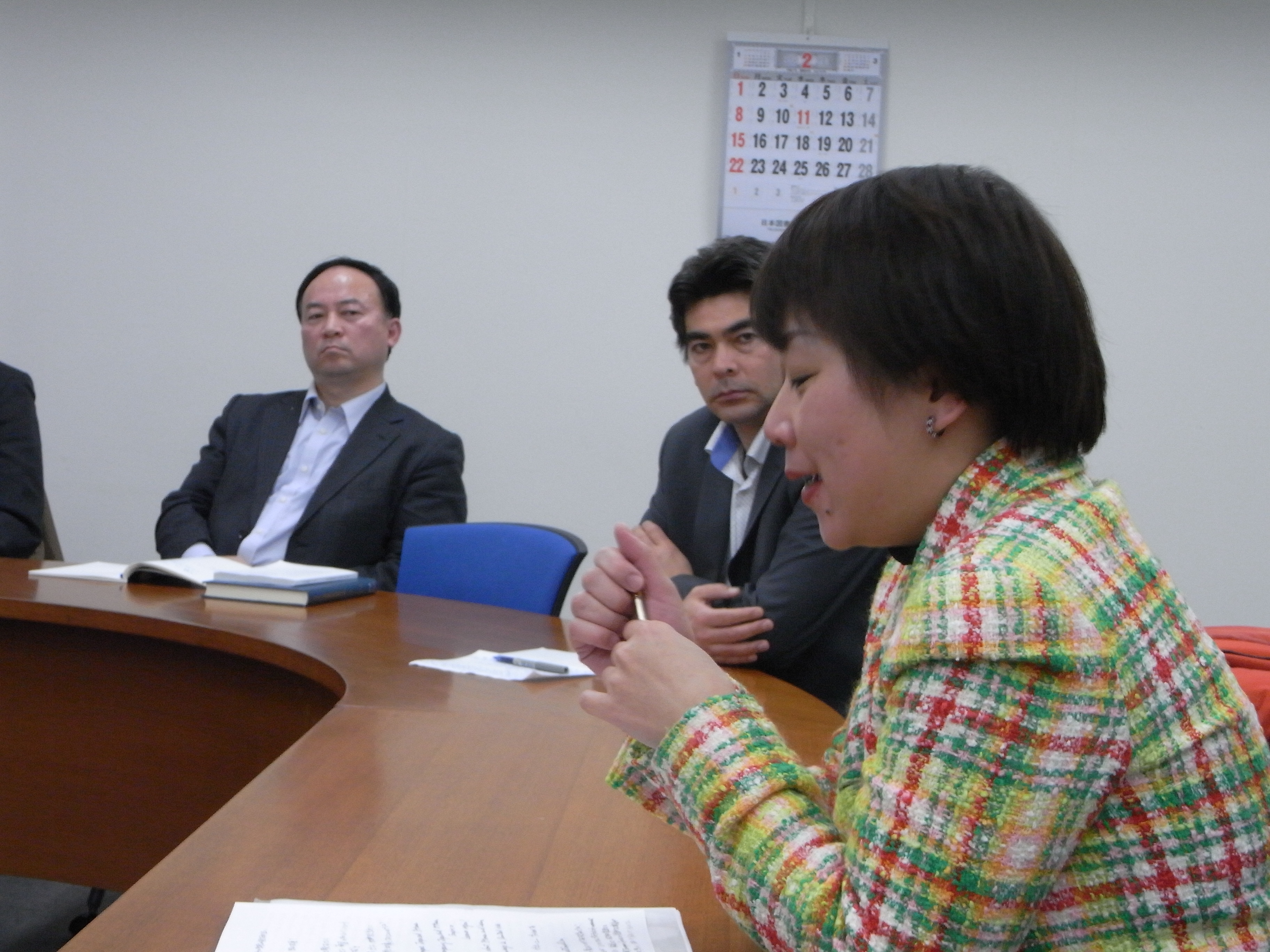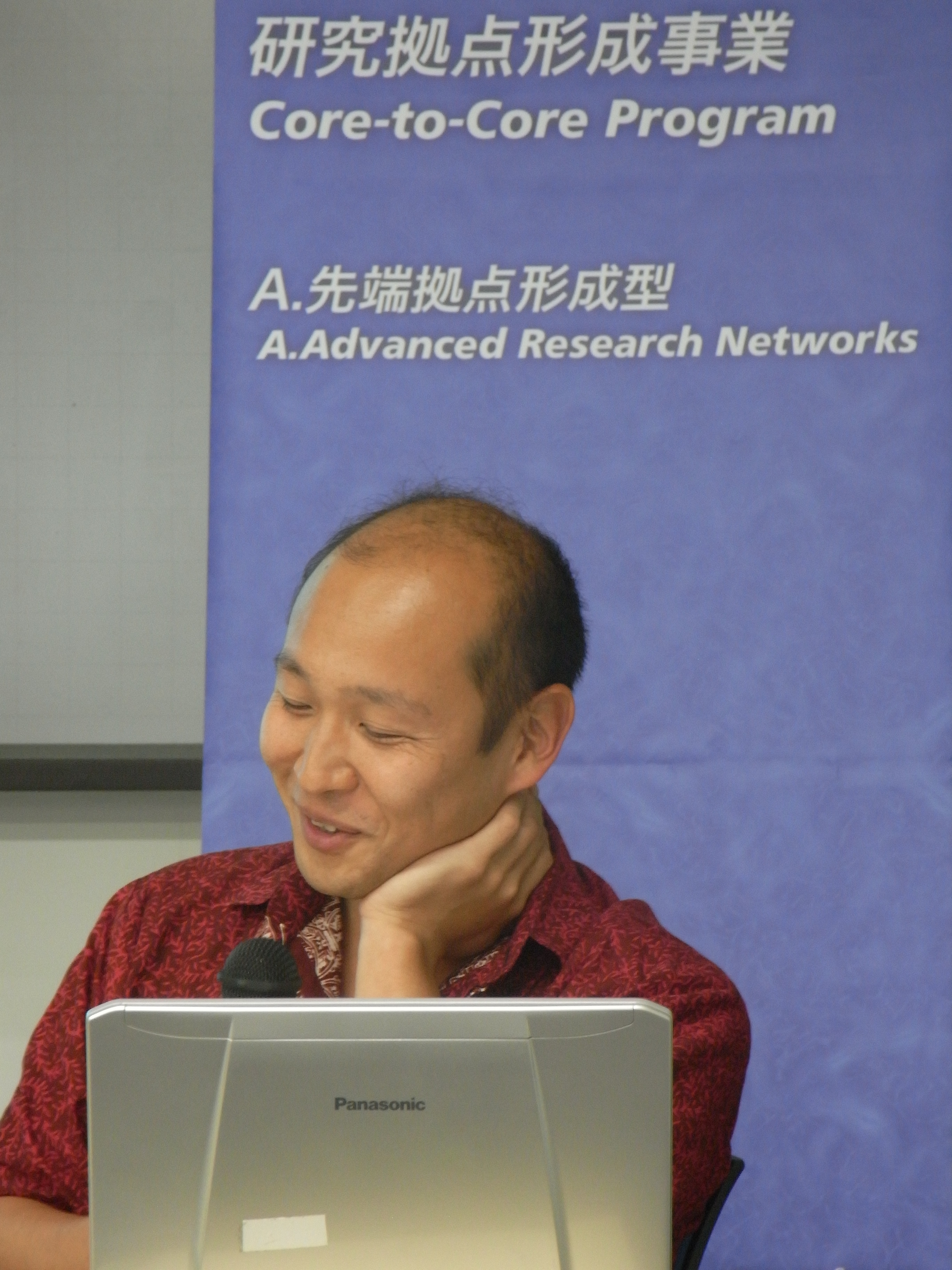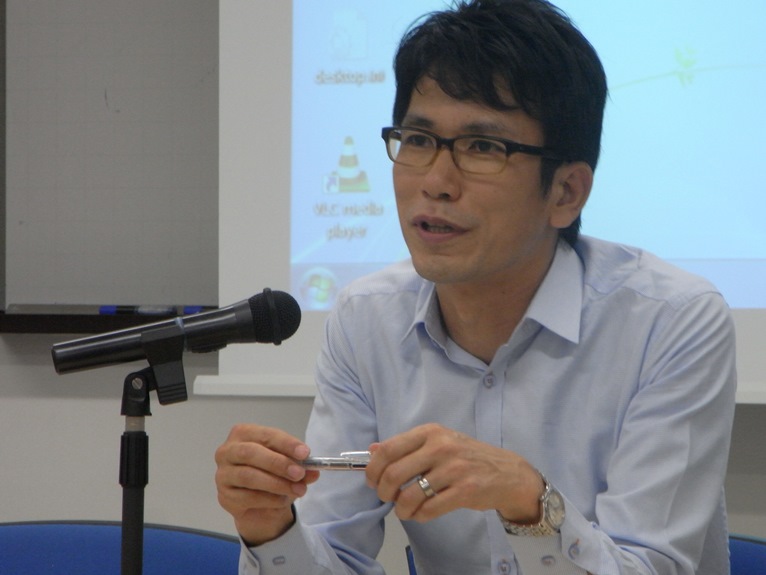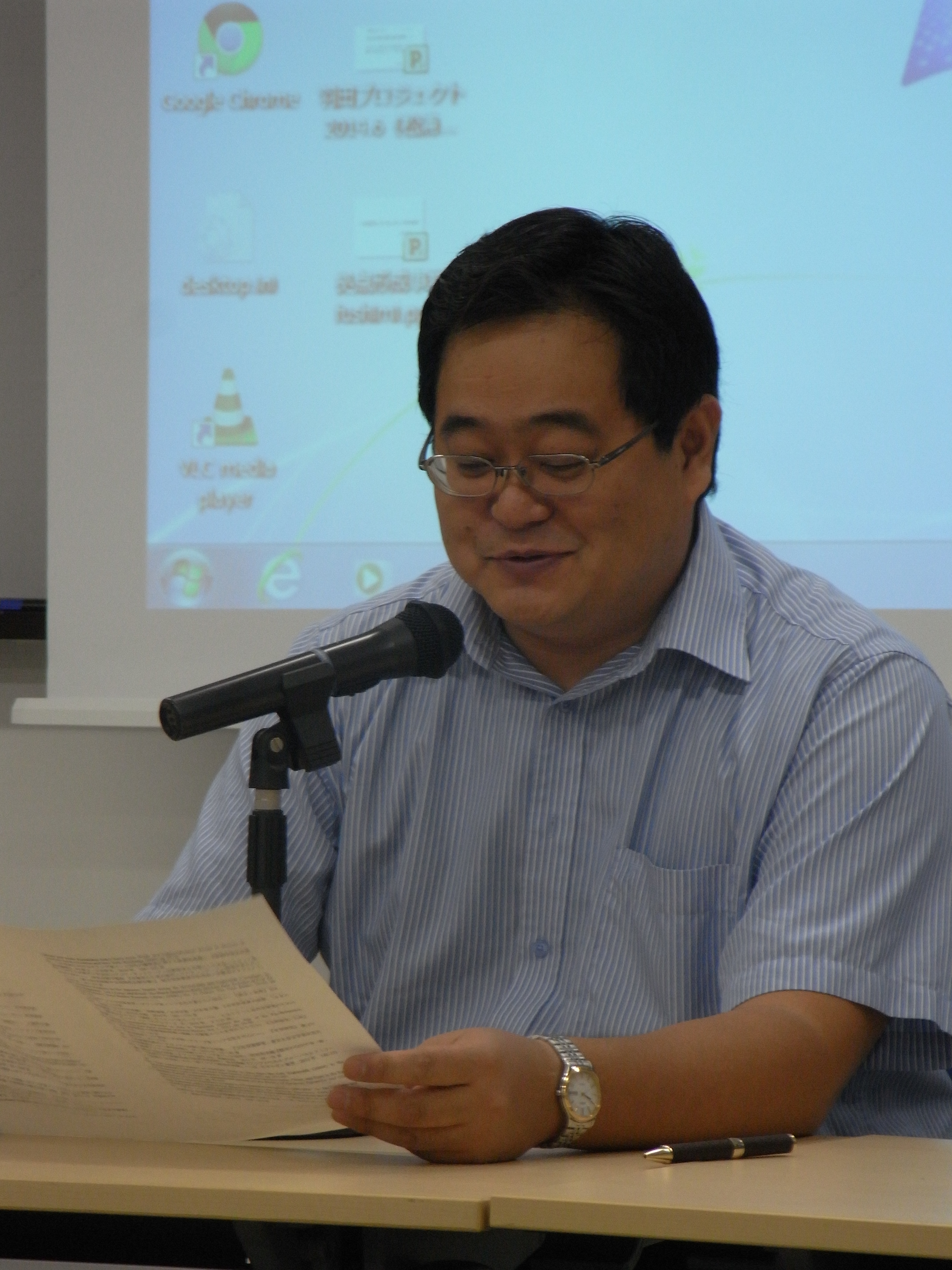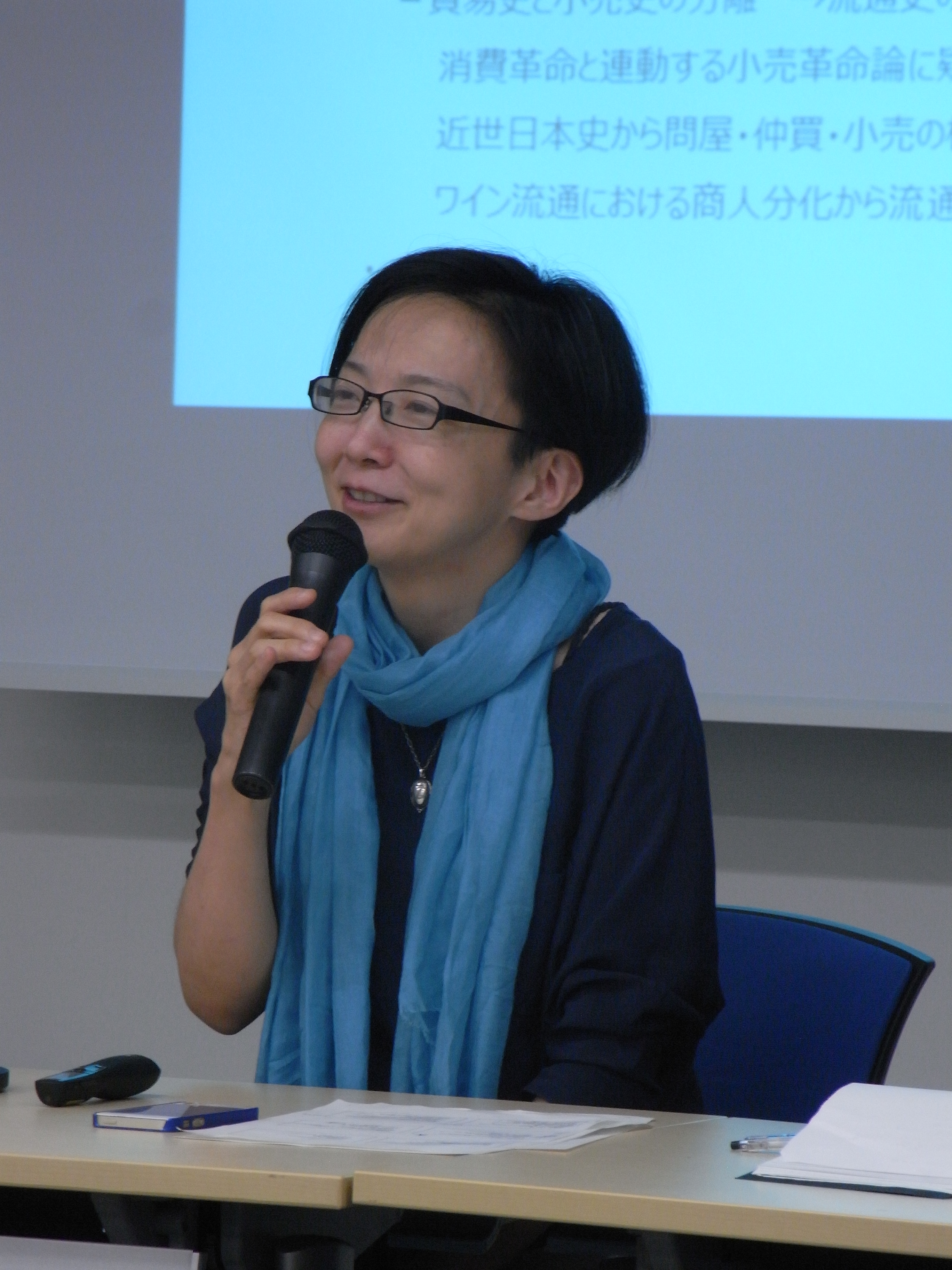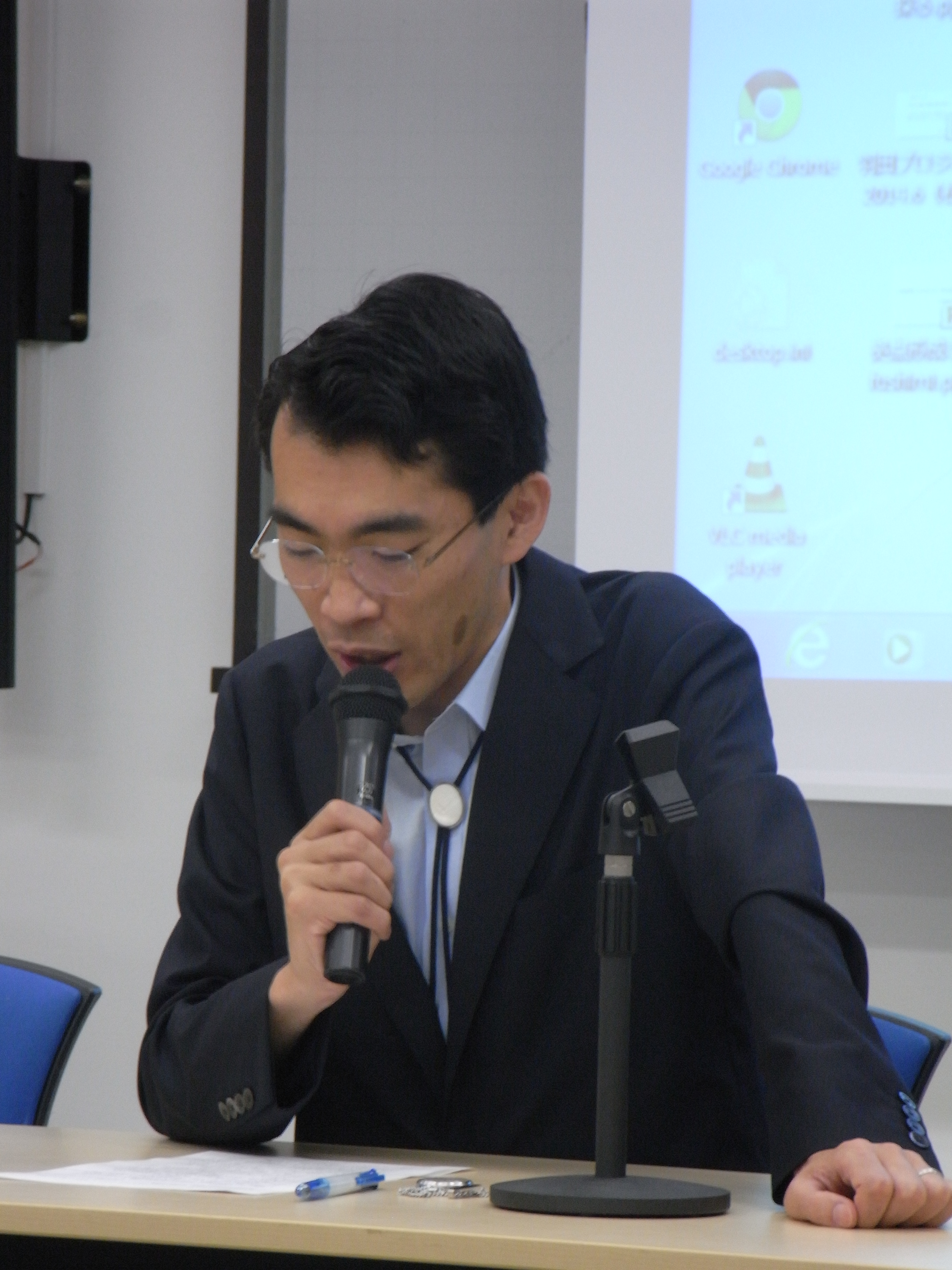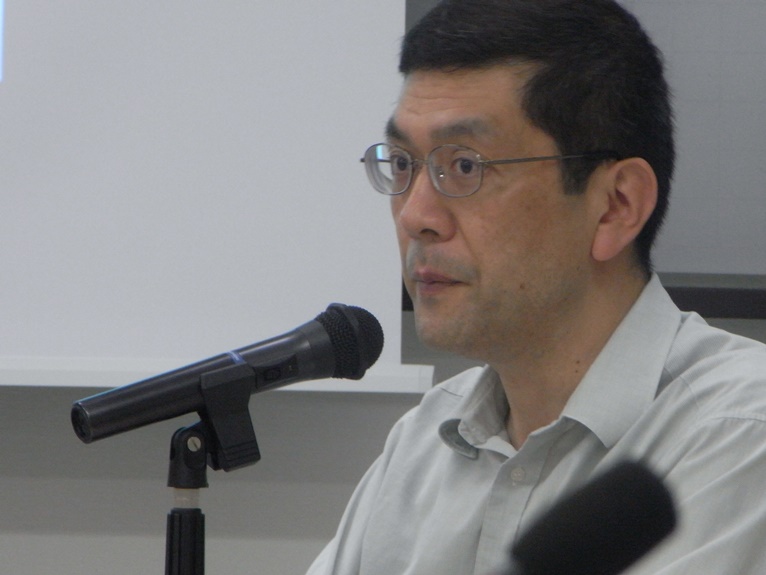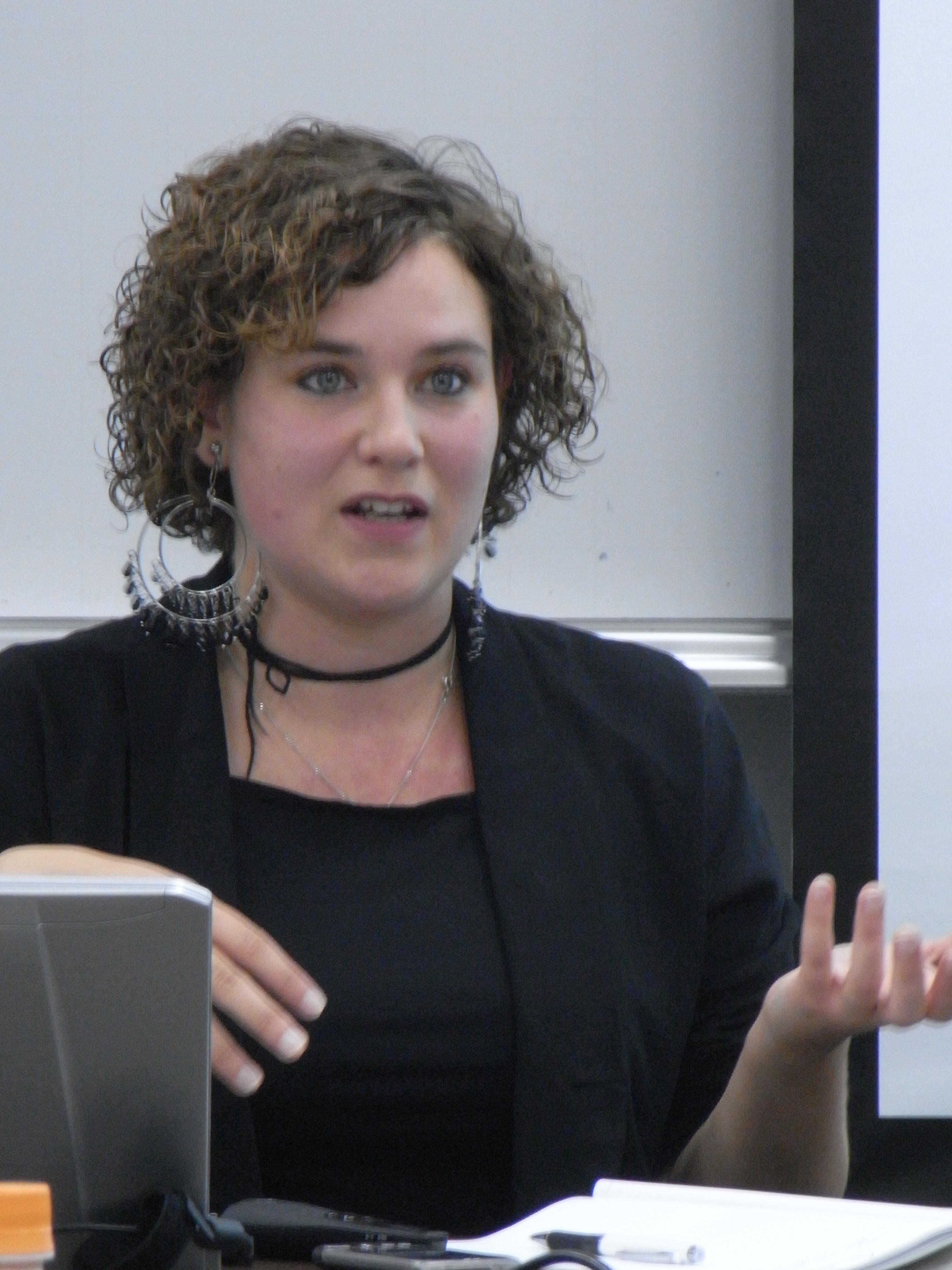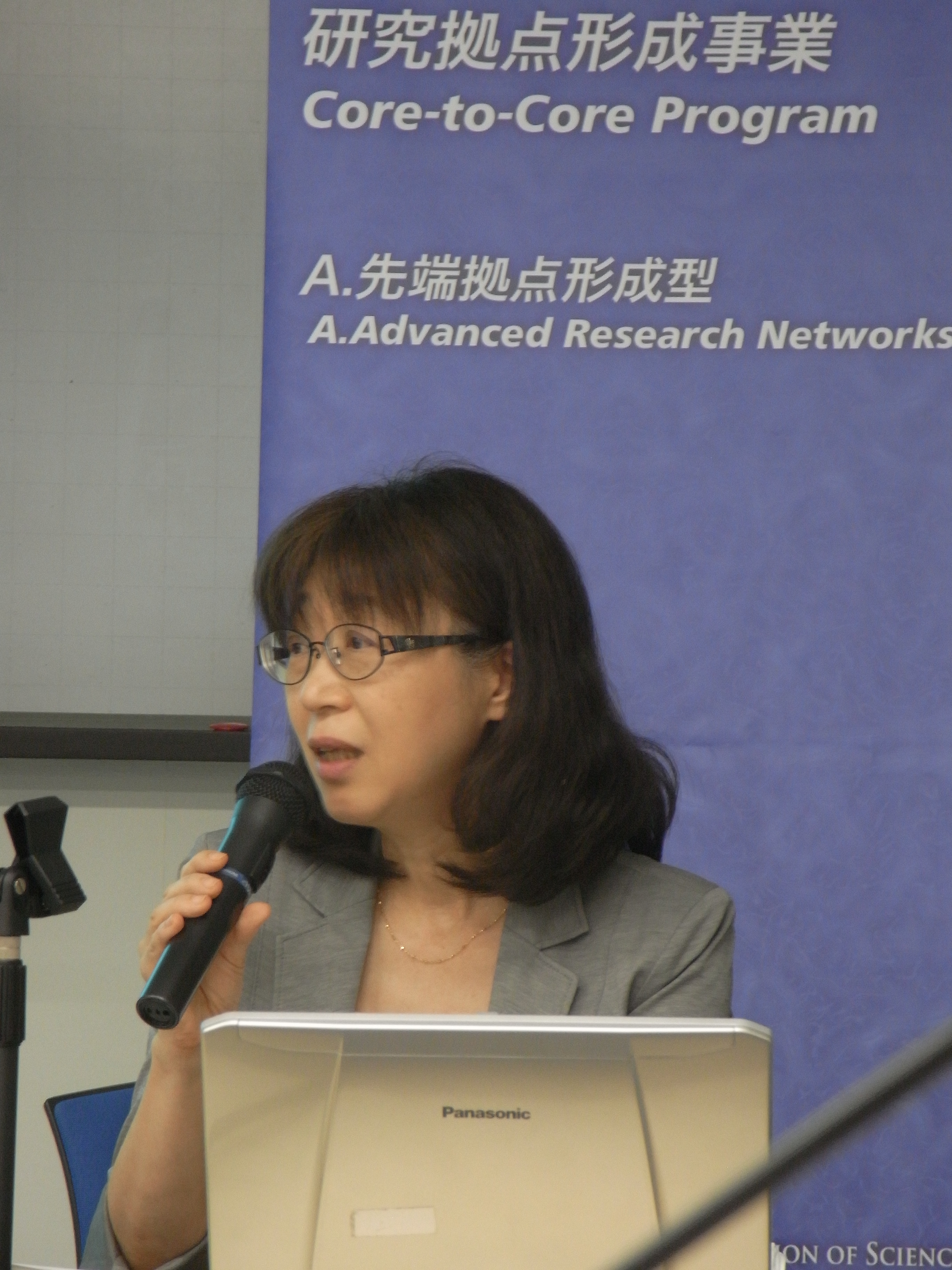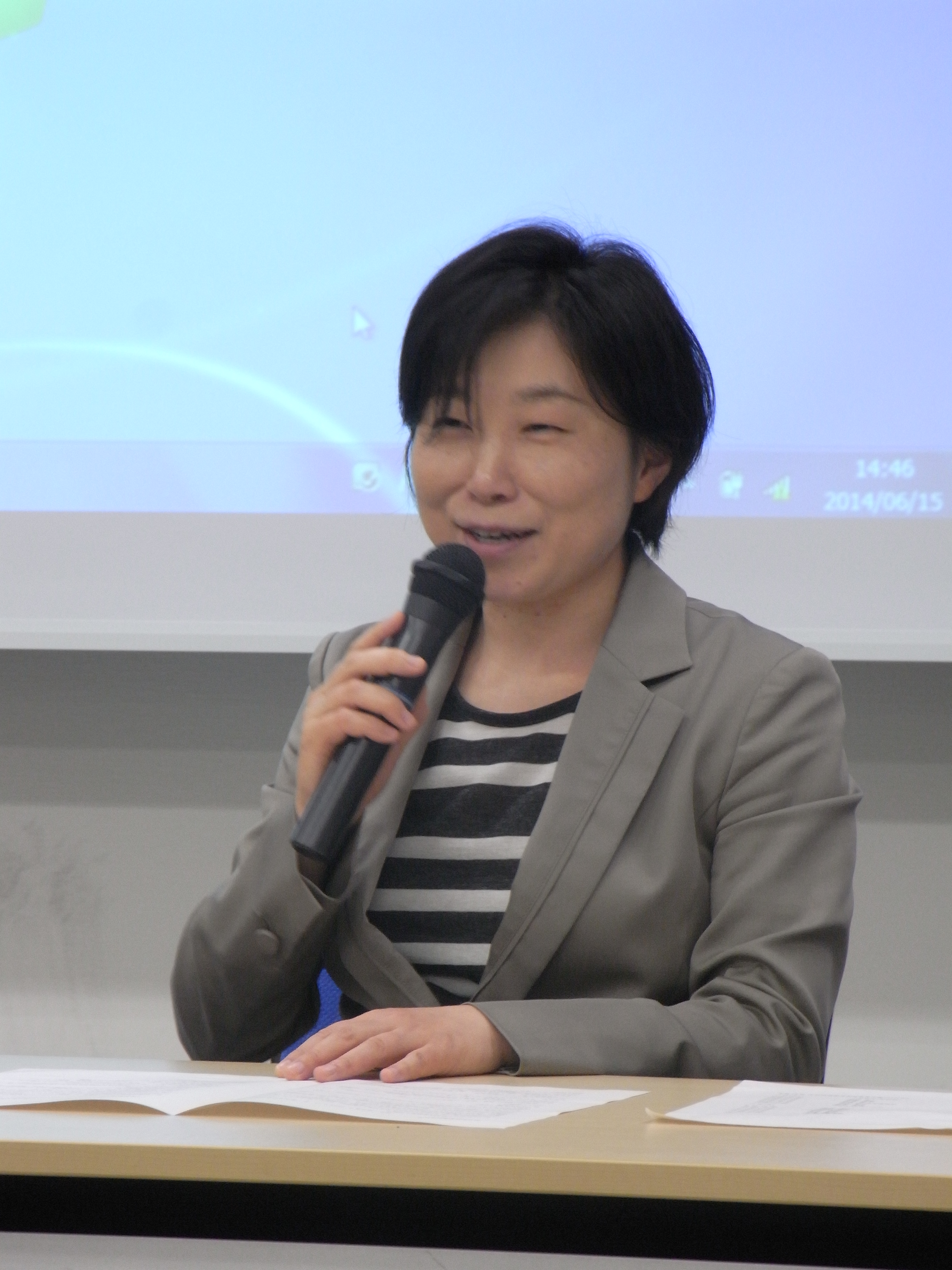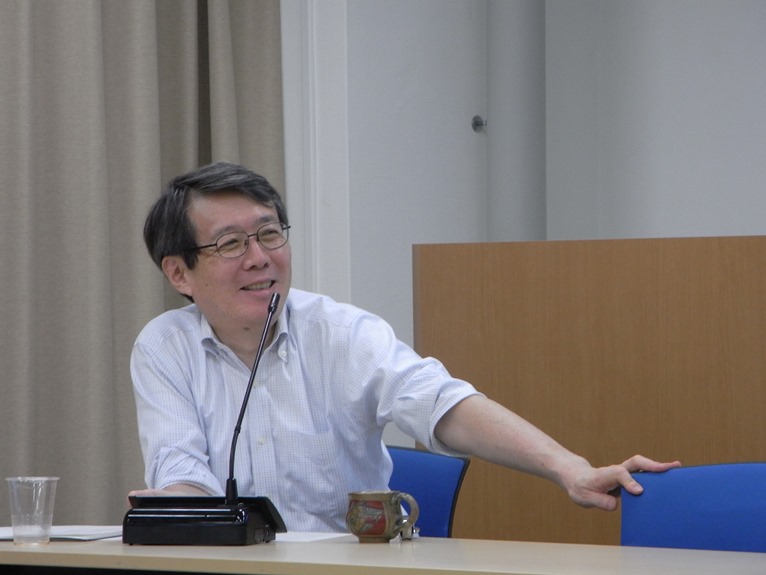2014.06.15
2014年6月研究会 Workshop in June
6月14日(土)、15日(日)の二日間、拠点形成事業の第2回目となる研究会が開催された。この研究会では、まず羽田正氏から事業についての説明が行われた。新しい世界史/グローバル・ヒストリーに関する国際的なネットワーク型研究である本プロジェクトの目的、共同研究や研究成果を英文で刊行するという事業計画、またプリンストン大学(米)、社会科学高等研究院(仏)、ベルリン・フンボルト大学(独)の拠点機関が各年持ち回りでおこなうサマースクールや、各機関に大学院生やPDを公募で派遣するという若手育成に関する事業の紹介がなされた。現在のところ、10月にアメリカ、来年2月にフランスに研究者の派遣が予定されていること、さらに12月にドイツで国際研究集会が開催されることが決まっている。また、この夏のホームページ開設に向けて準備を進めていることが伝えられた。
羽田氏からは最後に、これまでの自身の経験を語った。ペルシャ史の研究から出発して、人とのつながりや交流に関心を持ちながら都市史や建築史、旅行記研究に興味を持ったこと。自身のそのような研究過程において、より広い視野から過去を見ることが必要であると考え、既存の歴史研究の枠組みに疑問を持ったという。日本語の文脈でなぜ新しい世界史というものが必要なのか、また英語のGlobal Historyとはどのように違うのか、あるいは同じ点があるのかということを、外国人研究者と議論することこそが、今必要であると述べた。
つづいて、本事業の中心的役割を担う15名の研究者が、自己紹介を兼ねて、各自の現在の研究における関心事を紹介した。またこれまでにどのような研究をおこなってきたのか、そしてなぜグローバル・ヒストリーと向かい合うようになったのかを簡潔に紹介し、今後の展望について発表をおこなった。
この研究会では、各自のグローバル・ヒストリー前史を語ることにより、12月にベルリンで予定されている”Is Global History Truly Global?: Positionality of Historians”と題されたキックオフ・ミーティングに向け、日本側の研究者内での意思統一を図ることができたといえる。
The second workshop of the Global History Collaborative was held on June 14 (Sat) and June 15 (Sun). Prof. Haneda Masahi began by providing an overview of the project. He stated that the project’s objectives were to conduct and build research through international networking on new world history or global history. He also explained the project’s plans. These include publishing collaborative research and joint research achievements in English, operating summer schools which are to be held on an annual rotation basis at the project’s member institutions (Princeton University (US), the School for Advanced Studies in the Social Sciences (France), and Humboldt University of Berlin (Germany)), and running an open applications program to encourage young post-graduate and post-doctorate students to apply to member institutions so that they can continue with their research. As of now, one researcher has been accepted at the US institution in October this year and another researcher has been accepted at the French institution for February 2015. An international workshop is now being planned and will be held in Germany in December. In addition, the program’s website is currently scheduled to be up and running by this summer.
In his closing remarks, Prof. Haneda shared his experiences as a researcher. He first started as a scholar in Persian History. He then went on to Urban History and the History of Architecture with a particular interest in how people relate and communicate with each other. He next became interested in travel writing studies. In the process of immersing himself in various fields, he has come to realize that it is necessary to study the past from a wider perspective and question the current framework of research on history. It is now important to have debates with international researchers as to why we need to examine the new horizon of sekaishi (world history or global history) in Japanese and see how this differs from or is similar to the Global History studied in English.
Following Prof. Haneda’s introduction, 15 researchers, who will be at the core of this project, introduced themselves and their research interests. In addition, they briefly introduced the background to their research and described how they had come to study Global History.
To sum up, in this workshop, Japanese researchers were able to share common ground through their discovery of what had led each of them to Global History, and this served as an excellent preparation for the upcoming kick-off meeting entitled “Is Global History Truly Global? The Positionality of Historians,” which is due to be held in Berlin in December.









